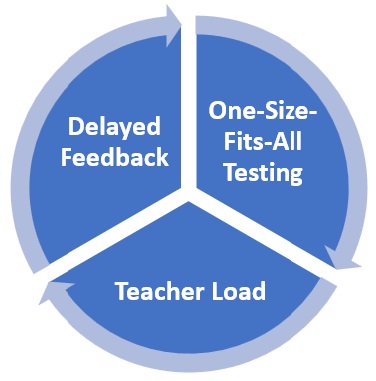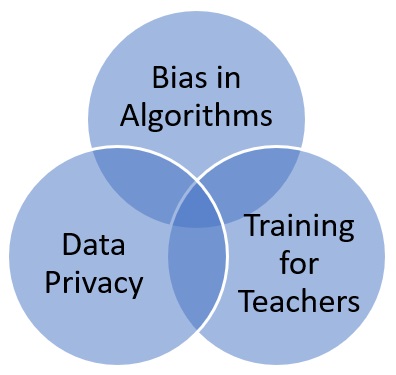
Language learning has always depended on assessments to measure development, but traditional testing approaches are often time-consuming, inflexible, and limited in scope. Teachers spend hours grading, students wait eagerly for results, and institutions struggle to scale assessments for miscellaneous learners.
By 2030, the global AI in education market is projected to reach USD 30 billion (HolonIQ), with language testing playing a significant role. For TEFL educators, staying updated with these innovations isn’t just helpful, it’s career-defining.
Enter Artificial Intelligence (AI), it is a game-changer in the world of language education. With AI-driven testing, assessments are now adaptive, data-rich, and immediate, making them more efficient and reasonable for learners worldwide. For educators pursuing an Advanced TEFL Diploma or an Advanced PG Diploma in TEFL, understanding AI-powered assessments is no longer discretionary, it’s important for staying ahead in contemporary classrooms.
Why Outdated Assessments Fall Short?
Traditional language assessments face several boundaries:

According to a 2023 report by Pearson, nearly 64% of language students prefer real-time feedback to progress their performance promptly. Evidently, the old model no longer meets the needs of today’s fast-paced digital classrooms.
The Growth of AI-Powered Language Assessment
AI presents a new way of assessing learners, combining automation with personalization. Three significant features stand out:
AI dynamically adjusts the struggle of questions based on a student’s responses. If a learner answers properly, the next question becomes more challenging; if not, the test adapts downward. This ensures a fairer and more accurate assessment of proficiency.
A study by ETS (Educational Testing Service) found that adaptive testing reduced test time by up to 50% while maintaining accuracy.
Unlike traditional scoring, AI systems generate comprehensive analytics on grammar, vocabulary, fluency, and pronunciation. Teachers gain a 360-degree view of student performance, identifying strengths and gaps immediately.
AI platforms deliver instant scores and approvals, helping students correct mistakes right away. According to a 2022 Duolingo English Test report, over 70% of learners improved faster when given immediate corrective feedback.
Real-World Examples of AI in Language Testing
Numerous platforms are already showcasing how AI enhances assessments:
Duolingo English Test (DET): Conducted completely online, DET uses AI to deliver results within 48 hours and is accepted by over 4,000 institutions globally.
Pearson’s Versant Test: Delivers automated scoring on speaking and writing in under 24 hours, widely used by employers and universities.
IELTS Online with AI Tools: Assimilates automated writing assessments, reducing examiner workload.
These examples highlight how AI is not replacing educators but empowering them with tools that make assessment faster, smarter, and more consistent.
Why This Matters for TEFL Teachers?
For teachers pursuing an Advanced TEFL Diploma or an Advanced PG Diploma in TEFL, AI-driven assessments open new prospects:
According to a World Economic Forum (2023) report, 85% of teachers believe AI can save significant classroom preparation and grading time. For TEFL experts, that means more energy enthusiastic to building authentic communication skills.
Challenges and Considerations
While promising, AI-powered assessments also raise questions:

Institutions offering advanced training programs, such as the Advanced TEFL Diploma, are gradually integrating modules on AI tools in language teaching, ensuring teachers graduate with both pedagogy as well as tech knowledge.
Wrapping Up
AI-powered language assessment is redefining how we evaluate learning, adaptive, data-rich, and instant. From providing instant feedback to offering deep insights into learner performance, AI ensures that student progress quicker while teachers gain smarter tools to guide them.
For TEFL educators, mostly those pursuing an Advanced TEFL Diploma or an Advanced PG Diploma in TEFL, mastering AI-assisted assessment is important to future-proofing their careers. As the education world embraces digital transformation, those who adapt will not just survive, they’ll thrive.